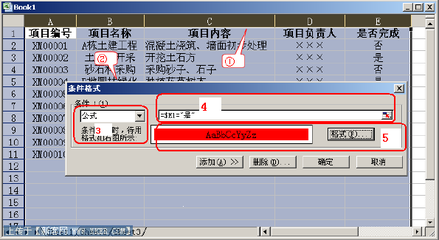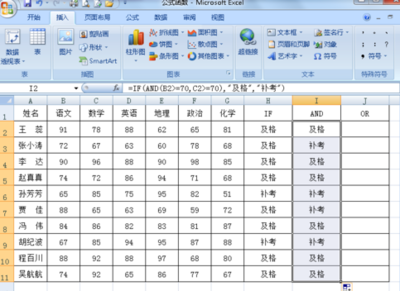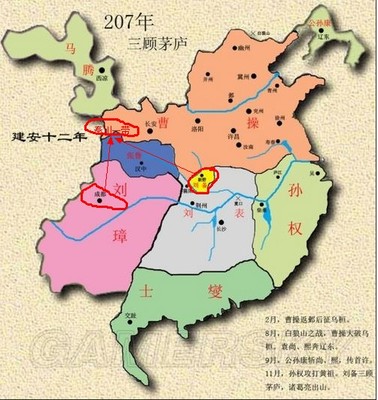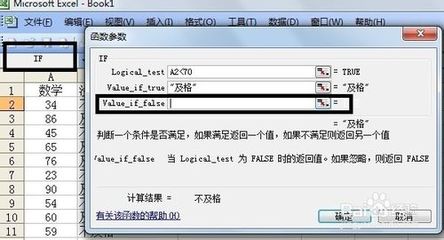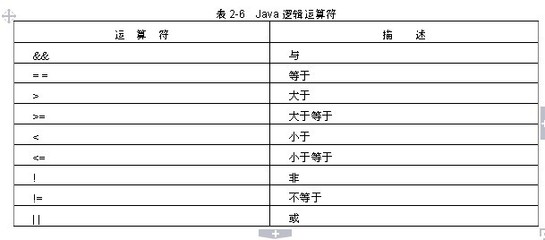虚拟语气表示一种不能实现的假设。该语法主要用于if条件状语从句。
一、if引导的条件状语从句的分类及虚拟条件句的判断
1、可以把条件句分为两类:
1).真实条件句(Sentences of RealCondition):凡是假设的情况发生性可能很大,就是真实条件句。例如:
⑴、If I have time , I will help you withthis work.如果我有时间会帮助你做此工作的。
(2)、If time permits, we'll go fishingtogether.(如果有时间的话,我们就一起去钓鱼。)
2).虚拟条件句(Sentences of UnrealCondition):当假设是不大可能实现时,就是虚拟条件句。例如:
⑴、If I were you , I would have attendedthe meeting. 如果我是你的话,就去参加会议了。
⑵、If he had come here yesterday, hewould have seen his old friend.假如他昨天来这儿的话,就会看见他的老朋友。
⑴、If it had rained yesterday, we wouldhave stayed at home.(如果昨天下雨的话,我们就会留在家里。)
2、.if条件状语从句中虚拟语气的判断
判断是真实条件句还是非真实条件句。只有在非真实条件句中才使用虚拟语气。通过句子意思,看假设的条件是否能够实现,能够实现是真实条件句,不能使用虚拟语气;假设的条件不能实现则是非真实条件句,要用虚拟语气。
判断这个假设是与哪个事实相反。通常有三种情况:①与过去事实相反。②与现在事实相反。③与将来事实可能相反。
3、“后退一步法”
后退一步法是指在准确地判断了该句与哪一事实相反后,按虚拟语气的后退一步法处理从句谓语动词的时态。即:在非真实条件状语从句中,谓语动词按正常情况“后退一步”。也就是:
①与过去事实相反,在从句中用过去完成时形式表示。
②与现在事实相反,在从句中用过去一般时形式表示。
③与将来事实可能相反,在从句中用过去将来时形式表示。
主句中则用情态动词would, should, could等加一个与从句一致的动词形式。例:
⑴、If I had come her yesterday, I wouldhave seen him.
⑵、If I were a teacher, I would bestrict with my students.
⑶、If it should snow tomorrow, theycouldn't go out.
4、注意事项
①if条件句中如有were, should, had,可以省去if,并使用倒装语序。
②在现代英语中if条件状与从句中的谓语动词如果是be其过去形式一般用were。
二、虚拟语气在if 引导的条件句中的用法:
(一)、表示与现在事实相反的情况。其句子结构为:
从句:if + 主语+ 动词的过去式(be 用were) + ……
主句:主语+ would (should, could , might)+ 动词原形+ ……
例:
1.If I were you, I would go with him.
2.If the weather were fine, I would gothere.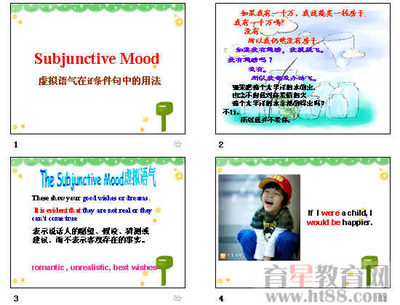
如果天气好,我去那儿。(事实天气不好)
3.If I were you, I would read it again.
如果我是你的话,我再读一遍。(事实上我不是你)
4.If time permitted, I would write itagain.
如果时间允许的话,我再写一遍。(事实上时间不允许)
5.If it weren’t snowing, we wouldn’t stay in thehouse.
要是现在不下雪的话,我们就不会待在屋里。(事实上现在下雪)
6.What would I do if I were in your place?
要是我处于你地位我会怎么办?(事实上我不在你的位置上)
7.If he hurried, he could catch the firstbus.
他要是快点能够赶上头班公共汽车。(可是他不着急)
8.If it weren’t for your help, we would get intotrouble.
如果没有你们的帮助,我们就会陷入困境。(而事实上得到了你们的帮助)
9.If we had the manpower, we could open up even moreland.
如果有人力,我们还能开更多的荒地.
10. If I were you, I would go with him.
(从句If I were you, 主句I would go with him.)
11. If I were you, I should buy it.
(从句用过去式动词were,主句用动词原形buy)
12. If I had time, I would study French.
(如果有时间,我会学习法文。)(从句用过去式动词had,主句用动词原形study)
13. If she knew English, she would not ask me for help.
(如果她懂英文,她就不必要我帮了。)(从句用过去式动词knew, 主句用动词原形ask)
注意:如果动作在进行中,主句要用:"主语+ would be + 进行式动词+ ……"
14. If they were here, he would be speaking to them now.
(从句用过去式动词were, 主句用would be speaking)
 爱华网
爱华网